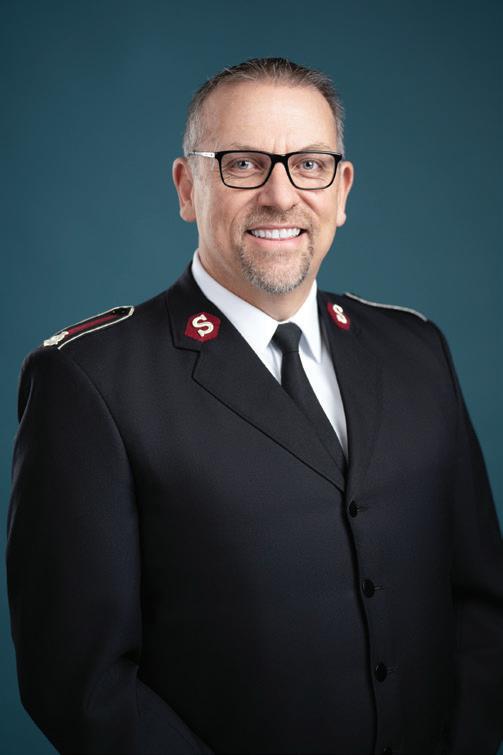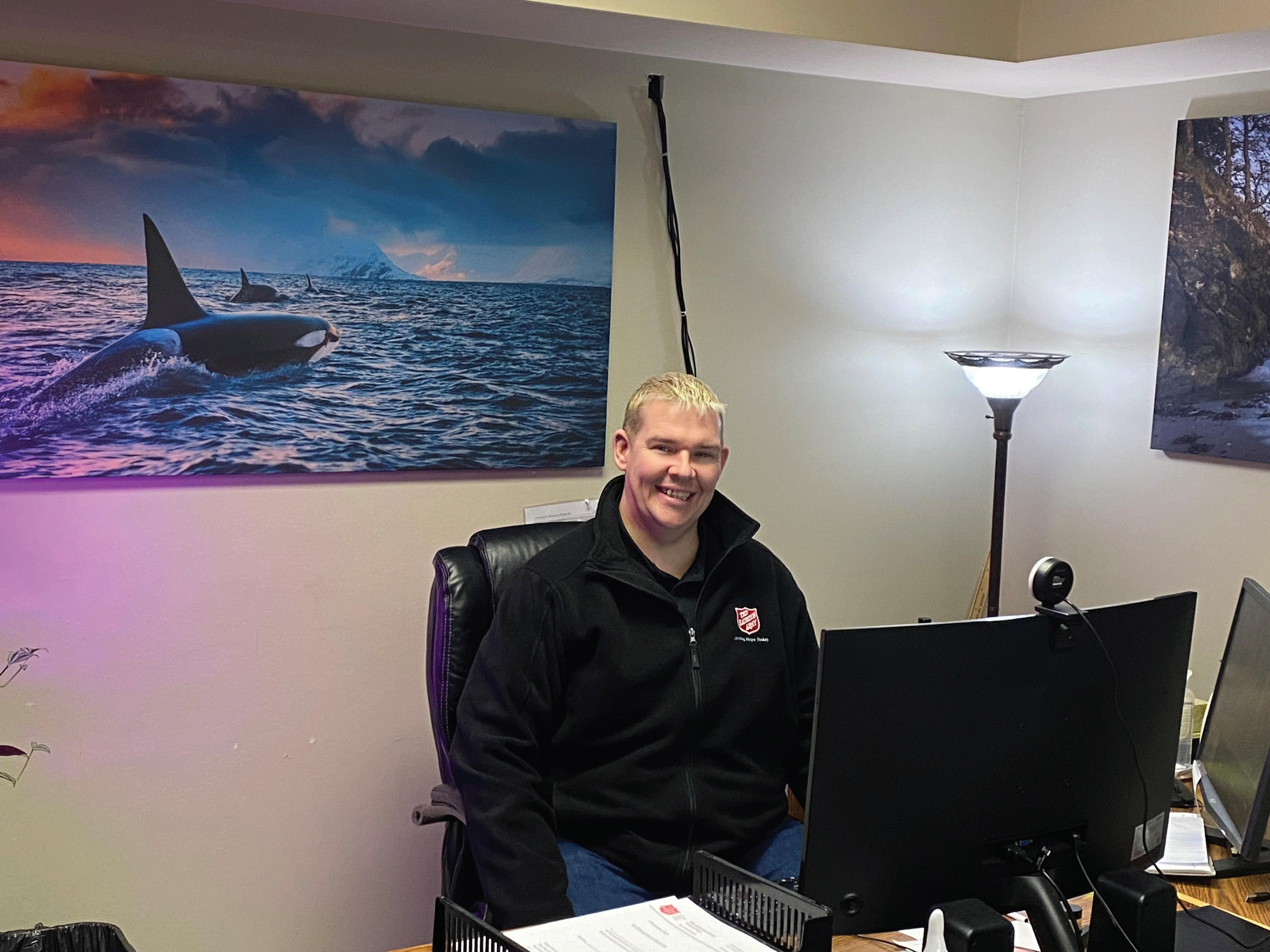










As you are aware, Pathway of Hope is an initiative by The Salvation Army that offers highly personalized case management services to individuals and families who are looking to break the cycle of intergenerational poverty and create positive change for their life, find community and build self-worth. The framework intentionally surrounds the person—and, where appropriate, their family—with holistic care and access to opportunities for spiritual growth and development.
In this Newsletter, you will encounter people whose lives are being transformed. They come from different age groups, backgrounds, places, life circumstances, starting points, and have different objectives. This diversity is a beautiful thing. It’s not a linear “process” and life can be messy, even at the best of times. Yet I am struck by how Pathway of Hope’s gentle empowerment of people to realize their goals is helping us to take Jesus at his word when He told us, “I have come that you may have life in all its fullness” (John 10:10).
As you read these stories and mull upon or over the data, which represents countless more lives changed for good, I pray that you will be as inspired, affirmed, and encouraged as I am. God is faithful!
Thank you to all officers, employees, volunteers, and donors who are involved in the provision of Pathway of Hope. For your support, your advocacy, time, skills, enthusiasm, and prayers. We genuinely value and appreciate your commitment.
Sincerely yours,



Accross the Territory, each Ministry Unit plays a pivotal role, working collectively to provide vital support, foster hope, and create a meaningful impact in the lives of individuals and families in Canada and Bermuda.

70% of the ministry units actively involved in Pathway of Hope are Corps based community service providers. Pathway of Hope can be utilized across all modalities of service provision and 30% of ministry units are implementing through shelter and/or transitional housing settings.
Pathway of Hope was officially launched in Canada and Bermuda in 2018. Since then, it has continued to grow and achieve success across the territory.
This year, we proudly celebrate a milestone: more than 1,300 enrollments, which represents lives touched, families supported, and individuals empowered to carve a path towards a brighter, more hopeful future.

From 2023 to 2024, the number of enrolled participants

1,381 Households served
2,128 Individuals 1 of whom are children 3






To break the cycle of poverty, we partner with individuals and families to develop a customized plan and take action to address root-cause issues and barriers.
As part of the intake process, participants complete the Client Self-Sufficiency Matrix . This assessment tool has been tested for both validity and reliability, and it helps the team to identify the barriers that prevent progress, as well as how different issues may be interconnected.
In 2024, the most significant obstacles for Pathway of Hope participants at enrollment were:
Pathway of Hope encourages participants to establish measurable and attainable (SMART) goals to create positive changes in their lives.
Goals have been achieved across all four divisions of the Canada and Bermuda Territory, reflecting participants' hard work and the meaningful progress made in overcoming barriers.

2,481 goals have been set Through Pathway of Hope:
As we enter 2025, active participants continue to work on 400 goals, striving to achieve meaningful progress in their journeys.
1,415 goals have been achieved
Pathway of Hope transforms lives by celebrating diversity in every form—cultural, generational, and personal. Each individual we support brings unique strengths and opportunities, and The Salvation Army personnel walks alongside them, breaking barriers and building pathways to success.
The diversity in ethnic representation reflects Pathway of Hope’s mission to serve all communities with compassion and understanding. By fostering inclusivity, we bridge cultural divides and empower participants to overcome systemic challenges while building brighter futures.
REPRESENTATION
Pathway of Hope supports individuals at every stage of life, from those navigating new opportunities to those working toward renewed stability. By meeting participants where they are, we help to equip them with the tools needed to achieve their aspirations, no matter their age or circumstance.
Fostering collaborative networks and partnerships is a crucial aspect of Pathway of Hope. More than 10,194 referrals have been made to other service providers and community partners.
Developed by Dr. Kaye Herth in 1992, the Herth Hope Index is a reliable tool used across clinical, research, and educational settings to measure hope. Pathway of Hope applies this tool, along with the Client Self-Sufficiency Matrix, every three months to track participant progress.
Pathway of Hope fulfills The Salvation Army’s mission by providing holistic support, help ing participants explore connections, meaning, and purpose. Using the Assessment , spiritual progress is tracked as participants move from crisis to stability.
Faith Growth
66% of participants report their faith grew stronger through Pathway of Hope.
57% more connected to a faith or spiritual community. of successfully completed participants identified they experienced increased 67%


While faith and spirituality are considered important to people, often they are not well connected to a faith or spiritual community/group.
81% of Pathway of Hope participants have a faith or spiritual belief that is of importance to them.
Pathway of Hope presents the opportunity for intentional conversation and relationship building that can lead to corps (church) and community integration.















